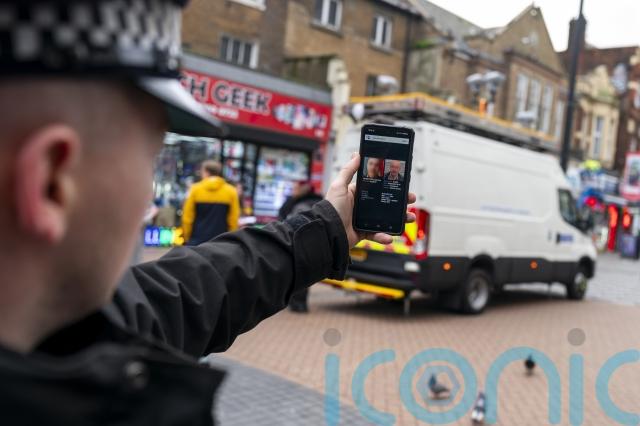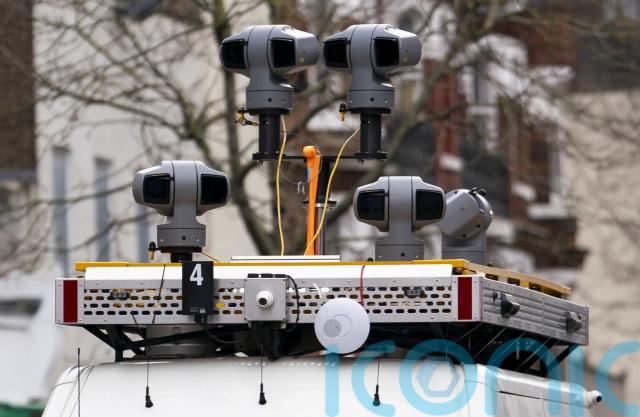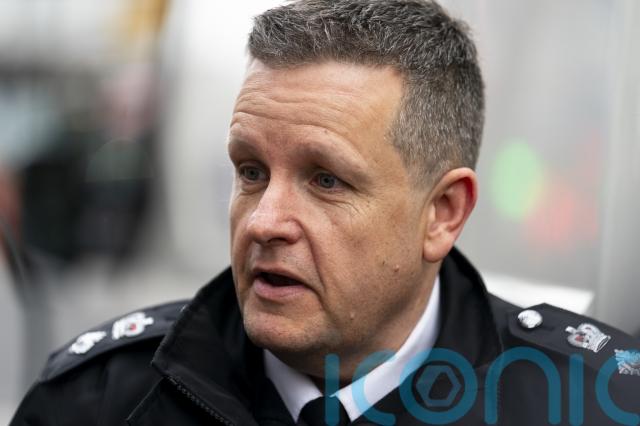
Live facial recognition is a “vital tool” for policing, the Metropolitan Police has said, as it continued its use in south London amid privacy concerns.
Two vans equipped with live facial recognition (LFR) technology were deployed in Croydon on Friday, part of a months-long operation which has so far led to 45 arrests in the borough.
Civil liberty groups including Big Brother Watch, Liberty and Amnesty International have criticised the technology as an “Orwellian” breach of privacy.
Addressing privacy concerns raised by campaigners and politicians, Chief Superintendent Andy Brittain, who leads policing in Croydon, said people “don’t need to panic”.

“I think it’s a vital tool for the Met to use to keep London safe,” he added.
“We’ve had some real crime problems in the past here and the community have reached out to us saying, ‘I want to feel safe here, I want to be able to come out, go shopping and not worry about crime’,” he said.
LFR technology scans faces and compares them with a database of people of interest to the police, allowing them to be questioned if there is a match.
The areas being monitored and the vans equipped with LFR cameras are marked by signs to tell people the technology is in use.
Mr Brittain said the LFR deployment was a “brilliant tactic” which freed up police officers and was accurate.
“Far more accurate, actually, than the scientific advice says,” he added.
He said the false-positive identification rate (FPIR) – where a person is wrongly flagged by the cameras – had so far outperformed the 1 in 6,000 rate the Met had previously been working to.
Madeleine Stone, senior advocacy officer at Big Brother Watch, said the technology was “really intrusive” and turned streets into “permanent police line-ups”.
“The police are able to scan us like barcodes,” she added.

“There’s no specific legislation on facial recognition technology.
“It hasn’t even been debated in Parliament.”
Donna Murray-Turner, chair of Croydon’s Safer Neighbourhood Board, said she understood people’s concerns but thought tackling crime in the south London town was more important.
She said: “Women, feeling afraid to walk through our own town centre when they need to shop, that supersedes the concerns around ‘walking identity cards’.
“For us here in Croydon, it’s really important that we’re kept safe.”
“Children and people have died here because of the level of criminality so it’s important for us to take a stand,” she added.

Mr Brittain said the biometric data of people not on the Met’s watchlist was subjected to “instant deletion” and LFR was supported by members of the local community.
“Whenever we are out here with this camera equipment, we’re getting shop-keepers and people passing by saying ‘thank you for being here and making Croydon safer’,” he said.
LFR technology was used by the Met during the King’s coronation in May 2023.
Subscribe or register today to discover more from DonegalLive.ie
Buy the e-paper of the Donegal Democrat, Donegal People's Press, Donegal Post and Inish Times here for instant access to Donegal's premier news titles.
Keep up with the latest news from Donegal with our daily newsletter featuring the most important stories of the day delivered to your inbox every evening at 5pm.